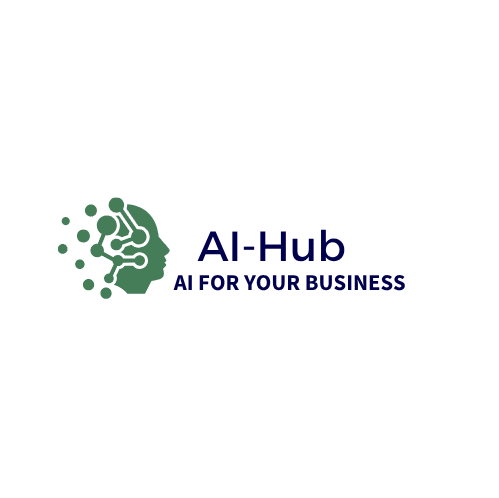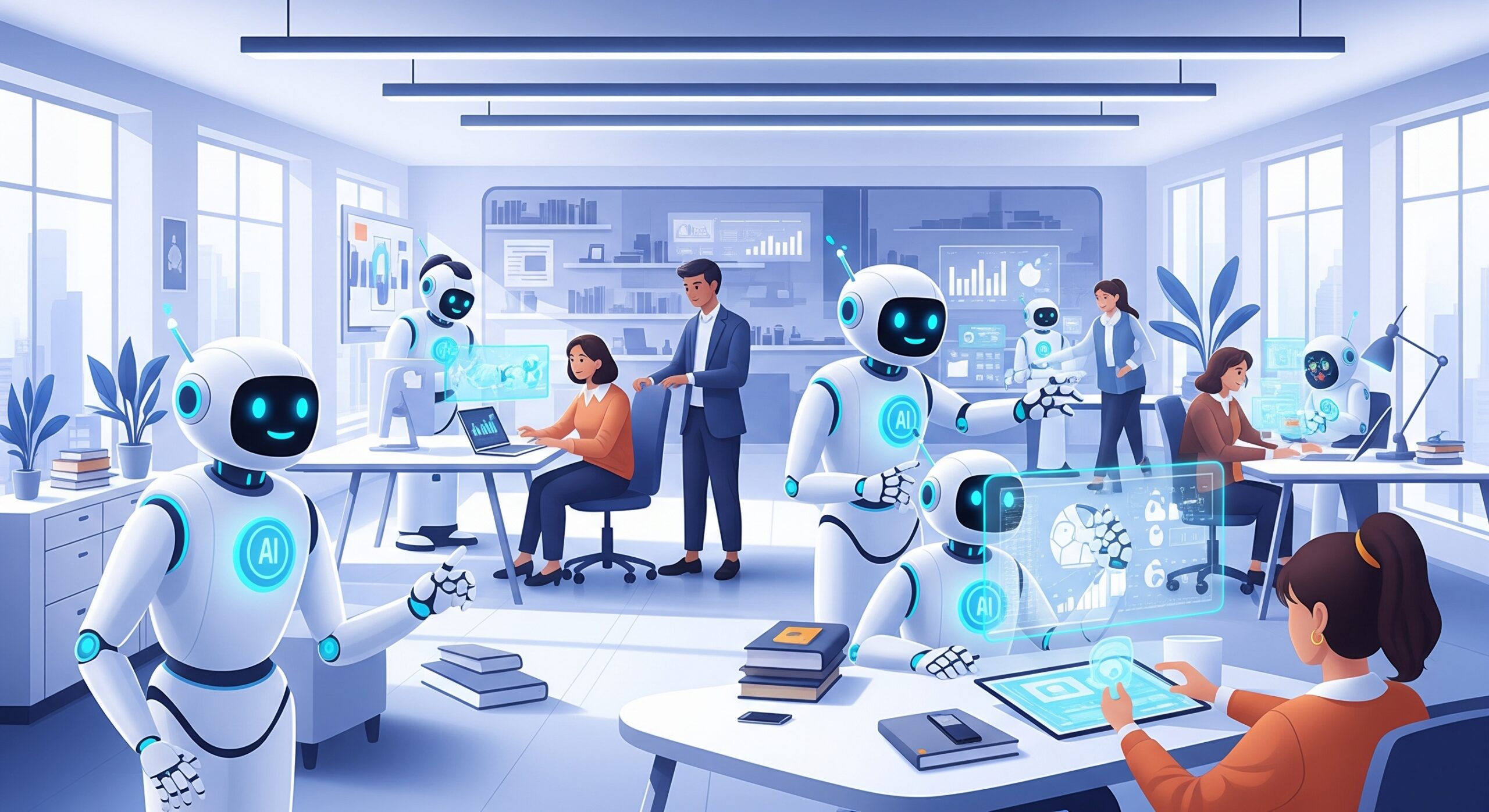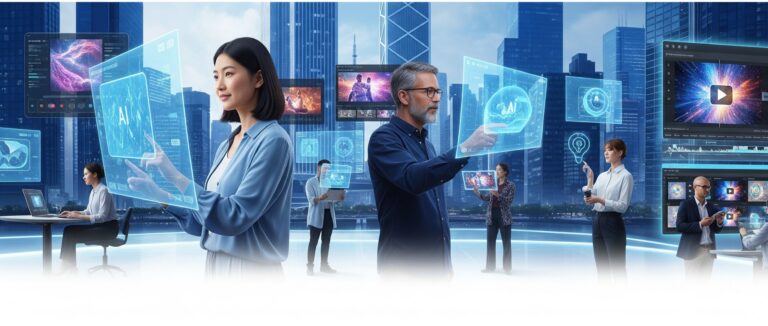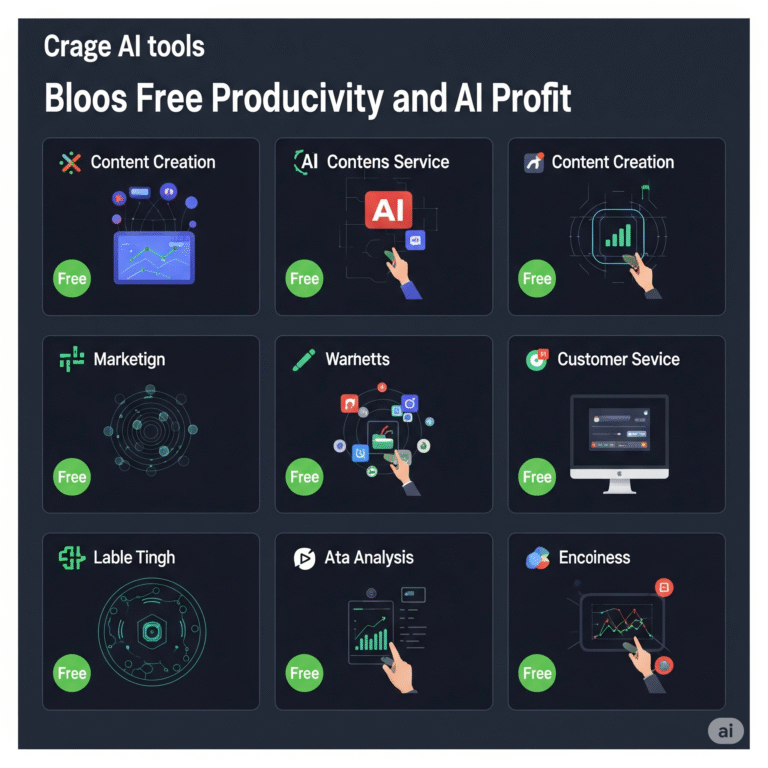Created with AIPRM Prompt “Fully SEO Optimized Article including FAQ’s (2.0)”
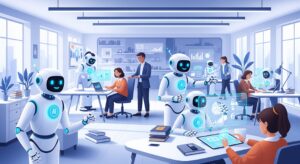
The Future of Work and AI: How Artificial Intelligence is Reshaping the Workforce
The integration of Artificial Intelligence (AI) into various sectors is no longer a futuristic concept—it’s a present reality. From automating repetitive tasks to enhancing decision-making with advanced analytics, AI is transforming how we work, the jobs we do, and the skills we need. But with innovation comes uncertainty: Will AI replace jobs? How should we adapt? This comprehensive article explores the impact of AI on the modern workforce and what the future might hold.
What Is Artificial Intelligence in the Context of Work?
Artificial Intelligence refers to the simulation of human intelligence processes by machines, especially computer systems. In the workplace, AI includes applications like machine learning, natural language processing, robotics, and intelligent automation.
Real-World Examples of AI at Work
- Customer Service: AI chatbots handle thousands of inquiries simultaneously, reducing wait times and improving customer experience.
- Healthcare: AI algorithms assist in diagnostics by analyzing imaging data with remarkable precision.
- Finance: Fraud detection and risk analysis are significantly improved with AI’s predictive modeling.
How Is AI Changing the Nature of Work?
1. Automation of Repetitive Tasks
AI excels at automating routine and repetitive tasks, freeing human workers to focus on strategic, creative, or interpersonal responsibilities. This is seen in areas like:
- Data entry and processing
- Invoice generation
- Basic customer support
2. Creation of New Job Roles
While AI may reduce the need for certain jobs, it also creates new roles such as:
- AI ethicists
- Data scientists
- Machine learning engineers
- Prompt engineers (specific to generative AI tools like ChatGPT)
3. Improved Decision-Making
AI tools can analyze large datasets quickly, offering insights that help businesses make faster, more informed decisions. This is especially valuable in sectors like marketing, logistics, and human resources.
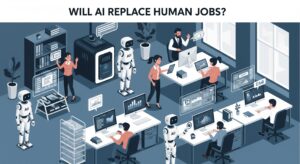
Will AI Replace Human Jobs?
This is one of the most frequently asked questions. The answer is nuanced.
Jobs at Risk of Automation
Certain jobs that involve repetitive manual tasks or routine cognitive functions are more susceptible, such as:
- Telemarketing
- Data entry clerks
- Manufacturing line workers
Jobs Least Likely to Be Replaced
Jobs that require emotional intelligence, creativity, and complex decision-making are harder for AI to replicate. Examples include:
- Teachers and educators
- Therapists
- Creative professionals (writers, artists, designers)
- Strategic leaders
What the Experts Say
According to a 2023 report by McKinsey, up to 30% of hours worked globally could be automated by 2030. However, the report also emphasizes that many new roles will be created, particularly in tech, healthcare, and green energy sectors.
How Should Workers Adapt?
1. Upskill and Reskill
The most proactive step is to learn new skills. Popular AI-related skills include:
- Python programming
- Data analysis
- Cloud computing
- AI prompt engineering
- Cybersecurity fundamentals
2. Embrace Lifelong Learning
Platforms like Coursera, edX, and LinkedIn Learning offer flexible, affordable courses on AI, data science, and more.
3. Develop Soft Skills
AI can’t replicate human traits like empathy, leadership, and adaptability. Strengthening these soft skills ensures long-term relevance.
What Are the Benefits of AI in the Workplace?
1. Increased Productivity
AI speeds up workflows and reduces errors, allowing teams to accomplish more in less time.
2. Cost Efficiency
Automation can cut operational costs significantly over time, especially in customer support and logistics.
3. Enhanced Accuracy
In industries like healthcare and finance, AI improves accuracy in diagnostics and fraud detection, reducing risk.
4. Better Work-Life Balance
By handling mundane tasks, AI allows workers to focus on meaningful tasks, reducing burnout and increasing job satisfaction.
What Are the Challenges of AI in the Workplace?
Despite its many benefits, AI integration presents significant challenges:
1. Job Displacement
The fear of losing jobs is real for many workers, especially in industries where automation is rapidly expanding.
2. Privacy Concerns
AI systems require vast amounts of data, raising concerns about data security and privacy.
3. Bias in AI
If not properly trained, AI systems can reflect and even amplify human biases, leading to unfair outcomes in hiring, lending, and law enforcement.
4. Ethical Dilemmas
Who is responsible when an AI makes a wrong decision? Defining accountability is still a gray area.
How Are Companies Using AI Today?
Here are some industry-specific applications:
- Retail: Personalized product recommendations, inventory management
- Healthcare: Virtual health assistants, robotic surgeries
- Banking: AI advisors, fraud detection systems
- Transportation: Route optimization, autonomous vehicles
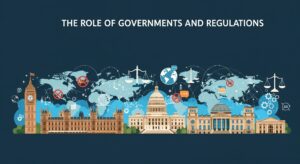
The Role of Governments and Regulations
Governments around the world are recognizing the need to regulate AI to ensure fair use and protect citizens.
Examples of AI Governance
- EU’s AI Act: Classifies AI systems based on risk and outlines usage guidelines.
- US AI Bill of Rights: A framework for protecting citizens in the age of AI.
Governments also need to invest in upskilling programs, subsidies for tech education, and social safety nets for displaced workers.
Frequently Asked Questions (FAQ)
Q1: Will AI take over all jobs eventually?
A: No. AI will change the types of jobs we do but not eliminate all employment. Human creativity, empathy, and ethical judgment remain irreplaceable.
Q2: What jobs are safe from AI?
A: Jobs requiring emotional intelligence, strategic thinking, and human connection—like therapists, teachers, and creative professionals—are safer from automation.
Q3: Is learning AI difficult?
A: Basic concepts are accessible with free or low-cost online resources. Advanced skills may require more time and practice but are worth the investment.
Q4: Can AI make decisions better than humans?
A: In data-heavy environments, yes. But AI lacks context, intuition, and ethical judgment, which are critical for many decisions.
Q5: How can small businesses use AI?
A: Through tools like automated customer service, chatbots, inventory management systems, and social media analytics platforms.
Final Thoughts: Embracing the Future of Work
AI is not just a tool; it’s a transformation. While the disruption it brings is real, the opportunities are even greater. Workers who adapt, learn new skills, and embrace AI as a partner—not a threat—will find themselves at the forefront of the future workforce.
The key is balance: leveraging AI to enhance productivity while preserving the uniquely human qualities that define our work, society, and future.
